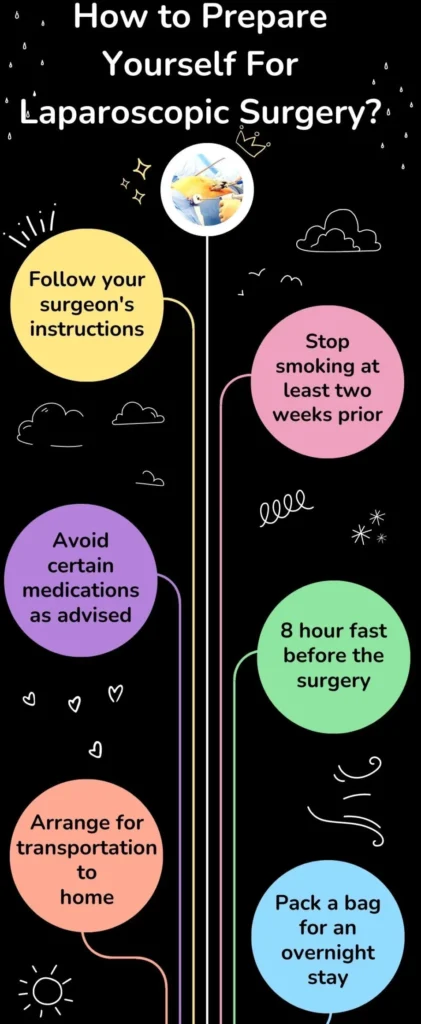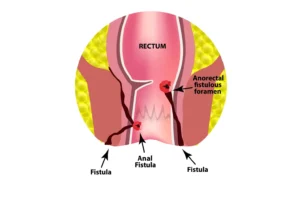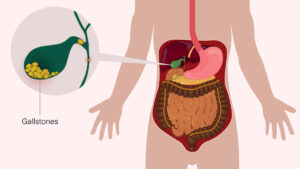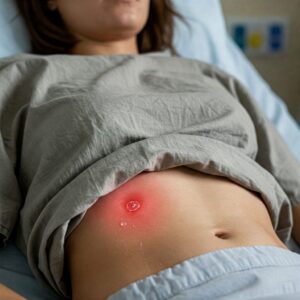What Pre-Operative Steps Ensure Safety in Laparoscopic Surgeries?
Laparoscopic surgery, also known as minimally invasive surgery, has become a preferred choice for various abdominal procedures due to its advantages, such as smaller incisions, faster recovery, and reduced pain. However, like any surgical procedure, the success of laparoscopic surgeries depends significantly on proper pre-operative preparation.
In this comprehensive guide, Dr. Pallab Saha, a leading general and laparoscopic surgeon in Kolkata, outlines the crucial steps patients should take before undergoing laparoscopic surgery. From physical readiness to emotional and logistical preparation, every step counts toward a smoother surgical journey and a quicker recovery.

Why Pre-operative Preparation Matters for Laparoscopic Surgeries
Pre-operative preparation for Laparoscopic Surgeries is more than just a checklist. It ensures that:
- The patient is physically and mentally ready for surgery.
- Risks and complications are minimized.
- The surgical team has all the information needed to proceed safely.
- Recovery is faster and smoother.
For laparoscopic surgeries such as hernia repair, gallbladder removal (cholecystectomy), appendectomy, and more, preparation plays a critical role in the outcome.

1. Pre-surgery Medical Evaluation
A. Comprehensive Medical History
Your surgeon will review your full medical history for Laparoscopic Surgeries, including:
- Past surgeries
- Existing health conditions (e.g., diabetes, hypertension, asthma)
- Allergies (especially to anesthesia)
- Medications or supplements
B. Physical Examination
A detailed physical exam is conducted to ensure you’re fit for general anesthesia before Laparoscopic Surgeries. This includes:
- Blood pressure check
- Pulse rate
- Heart and lung function analysis
2. Diagnostic Tests
Depending on your age, condition, and the procedure, several pre-operative tests may be required for Laparoscopic Surgeries:
- Blood Tests: CBC, blood sugar, clotting profile
- Urine Analysis
- Chest X-ray
- Electrocardiogram (ECG)
- Ultrasound/CT Scan/MRI (specific to the surgical site)
These help detect any underlying conditions that need attention before surgery.
3. Medication and Supplement Management
Some medications can interfere with laparoscopic surgeries or anesthesia. Your doctor may advise:
- Stopping blood thinners like aspirin, warfarin, or ibuprofen 5–7 days before surgery to reduce bleeding risk.
- Pausing certain supplements like Vitamin E, ginkgo biloba, and fish oil.
- Adjusting diabetes medications if you’re on insulin or oral tablets.
- Continuing essential medications like for high blood pressure, with minimal water.
Never stop or change medication without consulting your surgeon or anesthesiologist.
4. Fasting Guidelines
You will be required to fast before surgery. Typical instructions before Laparoscopic Surgeries:
- No solid food 6–8 hours before surgery
- No clear liquids 2 hours before surgery
- No chewing gum or smoking during the fasting period
This is vital to prevent aspiration during anesthesia, which can be life-threatening.
5. Bowel Preparation (If Required)
For certain abdominal procedures, your doctor might recommend bowel cleansing:
- Laxatives or enemas the night before surgery
- Clear liquid diet for 24 hours
This helps in better visibility and safety during laparoscopic procedures, especially for colon or rectal surgeries.
6. Smoking and Alcohol
Stop Smoking
Smokers face a higher risk of respiratory complications and slower wound healing. It’s ideal to stop smoking at least 2 weeks before surgery.
Avoid Alcohol
Alcohol can interact negatively with anesthesia and increase surgical risks. Avoid it for at least 24–48 hours before the procedure.
7. Weight Management and Physical Activity
Patients who are overweight may be asked to lose a few kilograms to reduce surgical risks. Mild exercise (as per your health condition) and a balanced diet can enhance post-surgery recovery.
8. Pre-operative Hygiene and Skin Prep
- Take a shower with antiseptic soap a night before or the morning of surgery.
- Avoid shaving the surgical area yourself it may lead to skin abrasions and infection. If necessary, hospital staff will handle this.
9. Inform About Any Changes in Health
If you develop fever, cold, cough, sore throat, or any infections a few days before the surgery, inform your doctor immediately. The surgery may need to be rescheduled depending on the severity.
10. Arrange Post-surgery Transportation and Support
You’ll be discharged either the same day or within 24–48 hours for most laparoscopic surgeries. Arrange for:
- Someone to drive you home
- A caregiver for at least 24 hours post-discharge
- Help with meals and medications during early recovery days
11. Mental and Emotional Preparation
Feeling anxious before surgery is normal. Here are some tips to manage it:
- Ask your surgeon questions about the procedure and recovery.
- Practice relaxation techniques such as deep breathing or meditation.
- Get adequate sleep the night before surgery.
12. Final Checklist for Surgery Day
- Wear loose, comfortable clothing.
- Do not wear makeup, nail polish, jewelry, or contact lenses.
- Bring your hospital documents, test reports, and insurance papers.
- Carry a small bag with essentials if an overnight stay is expected.
Common FAQs on Pre-operative Preparation for Laparoscopic Surgery
Q1: Can I take my morning medications on the day of surgery?
Only if approved by your surgeon usually with a sip of water.
Q2: Is it okay to brush my teeth before surgery?
Yes, you can brush, but do not swallow water.
Q3: Will I need to stop working out before surgery?
Mild exercise is fine until the day before surgery, but consult your surgeon.
Q4: How long before the surgery should I arrive at the hospital?
Usually, 2–3 hours prior, depending on hospital protocol.
Q5: How will I know if I’m fully prepared for surgery?
Dr. Pallab Saha and his team will provide a detailed pre-op briefing and checklist during your final consultation.
Conclusion
Proper pre-operative preparation for laparoscopic surgery can greatly enhance surgical success, reduce complications, and ensure a smooth recovery. Following your doctor’s instructions meticulously is the first step toward a healthier, safer outcome.
Whether you’re preparing for hernia repair, gallbladder removal, or any other laparoscopic procedure, trust an experienced professional like Dr. Pallab Saha for expert guidance every step of the way.

Consult Dr. Pallab Saha – Expert Laparoscopic Surgeon in Kolkata
Dr. Pallab Saha is a highly trusted general and laparoscopic surgeon in Kolkata, known for his skilled hands and patient-first approach. From initial consultation to full recovery, he ensures comprehensive care and support for every patient.
📍 Website: https://drpallabsahasurgeonkolkata.in/
📧 Email: drpallabsaha20@gmail.com
📞 Phone: (+91) 9830088321
Book your consultation today and prepare for your laparoscopic surgery with complete confidence!




